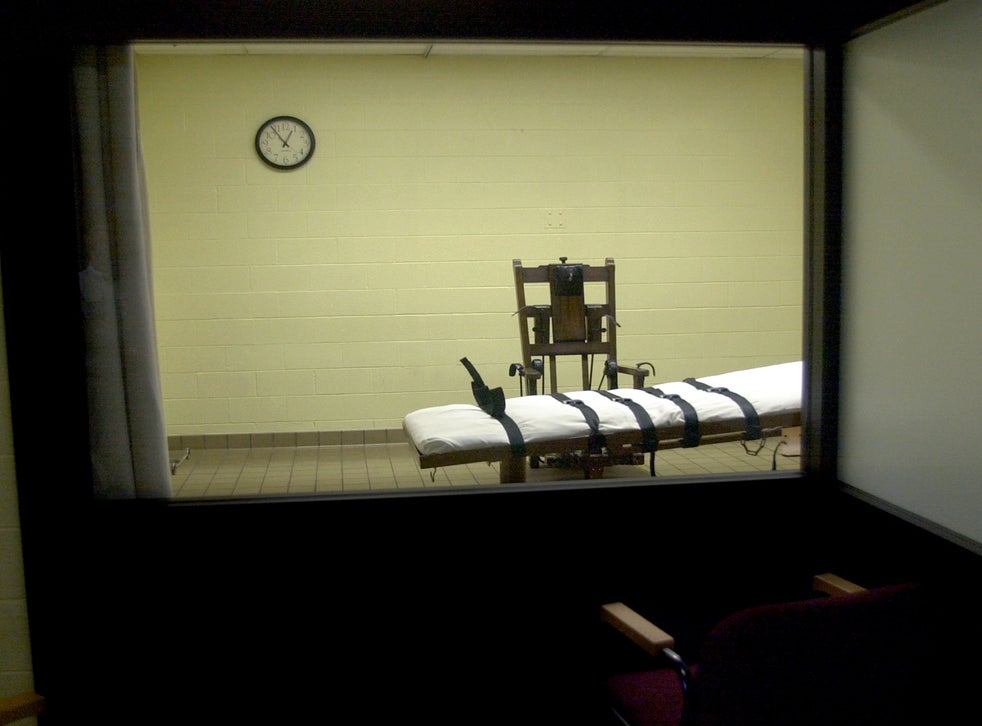Florida homeowner files lawsuit against HOA over order to remove BLM flag
Stephanie Guerilus
Wed, November 25, 2020
Antoine Mickel has sued his Florida HOA after they demanded his Black Lives Matter flag be removed but had no similar requests for those who supported Trump or Blue Lives Matter
A Florida homeowner is suing the HOA over their mandate that he remove a Black Lives Matter flag, but had no similar demands of other residents in support of different causes.
Antoine Mickel has lived in his Arlington neighborhood, where he and his neighbors have expressed their various views through the use of flags adorned on their homes, for 20 years. Some of the flags have included support for President Donald Trump, Blue Lives Matter, LGBTQ, sports, and those that are seasonal.

(Photo by Natasha Moustache/Getty Images)
However, Mickel was informed last month by his homeowner’s association that he had to remove his banner that reflected his commitment to Black Lives Matter. On Tuesday, he responded by filing a federal lawsuit and claimed his freedom of speech was being violated, News4Jax reports.
River Point Community Association, River City Management Services, the community’s president, and its property manager are named in the suit. Mickel told the outlet he respected the views of others and simply wanted the same courtesy extended to him.
“I can’t even sit in my home and feel comfortable,” Mickel said, adding that he is being made to feel like an outcast.
HOAs are given liberty to make and enforce their own rules. However, federal law will take precedence and Mickel believes that he is being unfairly targeted.
The National Fair Housing Alliance chairperson is supporting Mickel and he has recruited famed civil rights attorney Ben Crump in his efforts.
“The first day that he put up his Black Lives Matter flag, he was met with retaliation from the homeowners association,” Crump said. “If he did not take down the flag, they threatened him with fines and eviction.”
Read More: Sasha, Malia Obama joined summer BLM demonstrations, Barack says
Antoine Mickle exercised his 1st amendment right to free speech by flying a #BLM flag at his home — until his HOA threatened him with fines and eviction. Now here’s the double standard: His neighbors expressed their support for #Trump2020 and #BlueLivesMatter without reprimand! pic.twitter.com/PM3qVw9ypU
— Ben Crump (@AttorneyCrump) November 25, 2020
Crump also said that there seems to be two justice systems that exist in America and that Black people did not reap the same benefits of their white counterparts.
“Not only in policing but also in every aspect of our legal system. A justice system for Black people and a justice system for white people, when we should have equal justice for the United States of America,” he said.
“And so when we think about how this unfolded, the fact that Mr. Mickel saw other neighbors in his community putting up flags and expressing all kinds of flags—whether it was political flags, supportive of police or any number of positions—but the one day that he says ‘I too have a right to the first amendment. I too have a right to protest a position that others think differently from me on.’ The first time he said, ‘I’m putting on my Black Lives Matter flag,’ he was met with retaliation from the homeowners association.”
The HOA issued a statement to News4Jax over their matter and disputed whether it was actually a flag on Mickel’s home.
“It was the fact that a non-specific time period flag was flying off of his house, not on a flagpole. A letter would have been sent had he flown a Blue Lives Matter flag off of his house. At this time, the Association does not intend to take any further action and considers the matter closed.”
The post Florida homeowner files lawsuit against HOA over order to remove BLM flag appeared first on TheGrio.
However, Mickel was informed last month by his homeowner’s association that he had to remove his banner that reflected his commitment to Black Lives Matter. On Tuesday, he responded by filing a federal lawsuit and claimed his freedom of speech was being violated, News4Jax reports.
River Point Community Association, River City Management Services, the community’s president, and its property manager are named in the suit. Mickel told the outlet he respected the views of others and simply wanted the same courtesy extended to him.
“I can’t even sit in my home and feel comfortable,” Mickel said, adding that he is being made to feel like an outcast.
HOAs are given liberty to make and enforce their own rules. However, federal law will take precedence and Mickel believes that he is being unfairly targeted.
The National Fair Housing Alliance chairperson is supporting Mickel and he has recruited famed civil rights attorney Ben Crump in his efforts.
“The first day that he put up his Black Lives Matter flag, he was met with retaliation from the homeowners association,” Crump said. “If he did not take down the flag, they threatened him with fines and eviction.”
Read More: Sasha, Malia Obama joined summer BLM demonstrations, Barack says
Antoine Mickle exercised his 1st amendment right to free speech by flying a #BLM flag at his home — until his HOA threatened him with fines and eviction. Now here’s the double standard: His neighbors expressed their support for #Trump2020 and #BlueLivesMatter without reprimand! pic.twitter.com/PM3qVw9ypU
— Ben Crump (@AttorneyCrump) November 25, 2020
Crump also said that there seems to be two justice systems that exist in America and that Black people did not reap the same benefits of their white counterparts.
“Not only in policing but also in every aspect of our legal system. A justice system for Black people and a justice system for white people, when we should have equal justice for the United States of America,” he said.
“And so when we think about how this unfolded, the fact that Mr. Mickel saw other neighbors in his community putting up flags and expressing all kinds of flags—whether it was political flags, supportive of police or any number of positions—but the one day that he says ‘I too have a right to the first amendment. I too have a right to protest a position that others think differently from me on.’ The first time he said, ‘I’m putting on my Black Lives Matter flag,’ he was met with retaliation from the homeowners association.”
The HOA issued a statement to News4Jax over their matter and disputed whether it was actually a flag on Mickel’s home.
“It was the fact that a non-specific time period flag was flying off of his house, not on a flagpole. A letter would have been sent had he flown a Blue Lives Matter flag off of his house. At this time, the Association does not intend to take any further action and considers the matter closed.”
The post Florida homeowner files lawsuit against HOA over order to remove BLM flag appeared first on TheGrio.






































